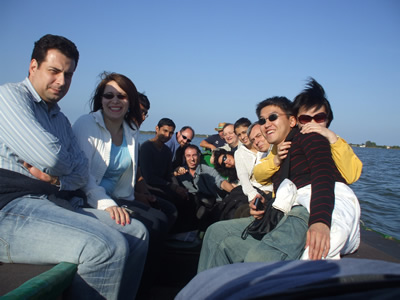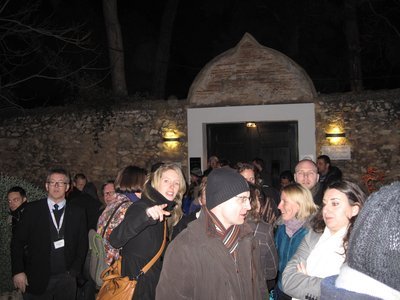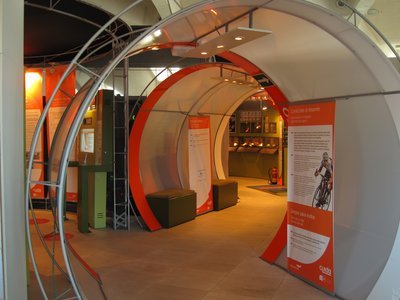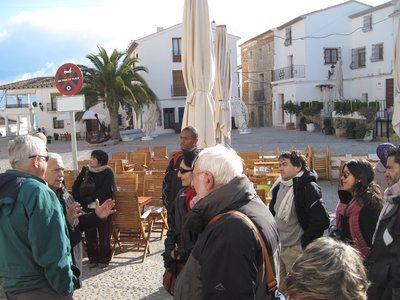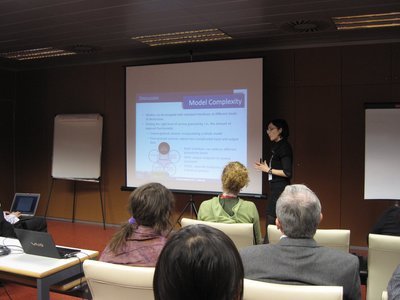AIVR 2025 - The Second International Conference on Artificial Intelligence and Immersive Virtual Reality
April 06, 2025 - April 10, 2025
AIVR 2025
Onsite and Online Options: In order to accommodate various situations, we are offering the option for either physical presence or virtual participation (pdf slides or pre-recorded videos).
ISSN:
ISBN: 978-1-68558-266-1
AIVR 2025 is colocated with the following events as part of ComputationWorld 2025 Congress:
- SERVICE COMPUTATION 2025, The Seventeenth International Conference on Advanced Service Computing
- CLOUD COMPUTING 2025, The Sixteenth International Conference on Cloud Computing, GRIDs, and Virtualization
- FUTURE COMPUTING 2025, The Seventeenth International Conference on Future Computational Technologies and Applications
- COGNITIVE 2025, The Seventeenth International Conference on Advanced Cognitive Technologies and Applications
- ADAPTIVE 2025, The Seventeenth International Conference on Adaptive and Self-Adaptive Systems and Applications
- CONTENT 2025, The Seventeenth International Conference on Creative Content Technologies
- PATTERNS 2025, The Seventeenth International Conference on Pervasive Patterns and Applications
- COMPUTATION TOOLS 2025, The Sixteenth International Conference on Computational Logics, Algebras, Programming, Tools, and Benchmarking
- BUSTECH 2025, The Fifteenth International Conference on Business Intelligence and Technology
- AIVR 2025, The Second International Conference on Artificial Intelligence and Immersive Virtual Reality
AIVR 2025 Steering Committee
|
 |
Muneo Kitajima
Nagaoka University of Technology (Emeritus)
Japan
|
|
 |
Aurelie Mailloux
Reims Hospital and University of Reims
France
|
|
 |
Manuel Caro
Universidad de Cordoba
Colombia
|
|
 |
Jerome Dinet
University of Lorraine
France
|
|
 |
Carolina Cruz-Neira
University of Central Florida
USA
|
|
 |
Zahra Moussavi
University of Manitoba
Canada
|
|
 |
Muneo Kitajima
Nagaoka University of Technology (Emeritus)
Japan
|
|
 |
Aurelie Mailloux
Reims Hospital and University of Reims
France
|
|
 |
Manuel Caro
Universidad de Cordoba
Colombia
|
|
 |
Jerome Dinet
University of Lorraine
France
|
|
 |
Carolina Cruz-Neira
University of Central Florida
USA
|
|
 |
Zahra Moussavi
University of Manitoba
Canada
|
AIVR 2025 conference tracks:
Designing and implementing AR in immersive systems
VR (Virtual Reality), AR (Augmented), XR (Extended), MR (Mixed) and IVR (Immersive) Reality
Real and virtual environments, augmented reality usability, mobile virtual reality
AR/MR-based co-design, Hybrid 2D/3D user Interface, AR with intelligent tutors
Digital augmented physical games, AR entertainment
Trends in AR, Spatial AR cues
Display and interface adaptations for VR
AR universal design for education
Dedicated AI-support for VR-oriented software systems
eXtended Reality (XR) in assistive systems
Design for users with cognitive disabilities
Design of Mixed Reality (MR) systems
Do-creation-based design of XR technologies
Guidelines for designing XR apps
Human-Virtual collaboration and cohabitation
Collaborative Immersive Virtual Reality (IVR) analytics
Active and Passive Haptics, Haptic Feedback, Visual Feedback, Tangible Interaction
Haptic human-machine Teaming
Robot Teammate
Human trust in a Virtual Assistant
AR teaching materials, mobile AR tutorial systems
Remote collaboration in VR, Collaborative MR
Groupware and MR, MR remote collaboration
Emotion sharing and augmentation in cooperative VR and MR remote collaboration
Education via AI-IVR for co-design processes
Training for news skills via AI-IVR
Training non-experts for developing futuristic scenarios and narratives
Education via IVR
AI and VR in patient rehabilitation and care for older adults
Co-creation design of VR for older adults
Augmented VR for cognitive training in individuals with dementia
Applications of VR/AVR as diagnostic tools and monitoring treatment efficacy
Innovative VR therapies for physical rehabilitation (after injuries or strokes, etc.)
Cognitive rehabilitation using AI and VR (cognitive decline, aging or neurological conditions)
VR for pain management (chronic pain, older adults).
AI-driven personalized care plans (quality of life for older adults)
Monitoring and assessment tools (health parameters, assess progress, and adjust treatments in real-time)
Social interaction platforms (interactions for older adults, loneliness, community)
Virtual reality safety and ergonomics (VR by older adults)
VR projects in geriatric care settings.
AI and VR in geriatrics and the ethical considerations.
AI and VR for early childhood and children with special needs
Educational VR applications for early childhood (engaging and educational content).
Therapeutic uses of VR for special needs ( autism, ADHD, etc.
AI for customized learning pathways (individual needs, learning disabilities, etc.)
Design of interactive learning environments using VR for promoting learning and engagements.
Behavioral analysis and modification via AI: (personalized strategies in real-time)
Safety and privacy in children’s VR (parental controls, content monitoring)
Methods for social skills development through VR
Accessibility in VR
Design for all range of abilities.
Statistics, impact studies and regulations on early VR exposure on children.
Applications of AR and immersive environments across sectors
Virtual fitting rooms and Interactive fashion shows
Integrated real world and immersive world in gaming industry
Medical training and education (teaching complex surgical procedures, 3D holographic views, etc.)
Patient rehabilitation and therapy (virtual activities, anxiety)
Precision farming visualization and training and maintenance of agriculture machinery
AR shopping (visualize before buying) and virtual stores tours (luxury retailers)
Property tours and architectural/ambient pre-design in real-estate area
AR in car design, visualize, and testing in automotive industry
Immersion environments for personalized car, apparels, house interior, physical training, etc.
User in immersive shared and tracking environments
360 Panoramas, 3D Reconstructed Scenes, Omnidirectional cinemographs, Virtual theaters
Cognitive adaptive training in VR and perception in MR
Authentication and shared social data in AR
AR entertainment and digital augmented physical games
AI-based neuroimaging for immersive virtual environments
Tools for tracking user’s movements and interactions in Immersive environments
Superposed immersive and real environments
Human-related analytics in immersive environments
Gaze modeling and interpretation,
Social network loneliness,
Gesture interaction for AR applications
Sharing gestures in remote collaboration, AV mirrors
Eye Gaze and hand gesture sharing
Physiological sensing in VR
Individualized VR for mental health
Generative-AI for human experience development
AI for human digital twins
Integration of XR in primary education
Deadlines:
Submission | Jan 20, 2025 |
Notification | Feb 16, 2025 |
Registration | Feb 28, 2025 |
Camera ready | Mar 05, 2025 |
Deadlines differ for special tracks. Please consult the conference home page for special tracks Call for Papers (if any).


